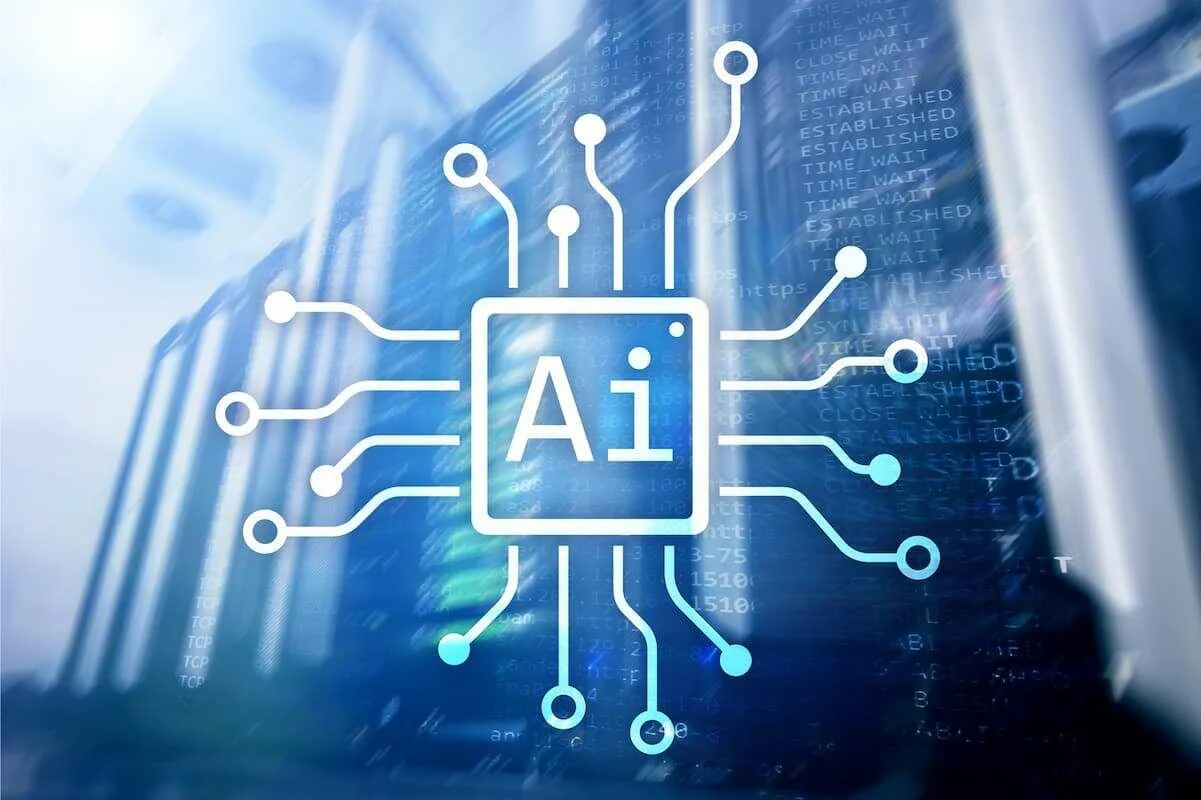Top Features of AI Implementation in Business

AI is cementing its place as a ground-breaking technology in the business realm. Many experts are inclined to think that the future will depend on these innovations based on advanced learning algorithms transforming the business landscape.
ABI Research, a technology company, reports that in 2022, the number of organizations applying countless artificial intelligence instruments will run high to 900,000, and the annual growth rate will go beyond 160%. It is impossible not to notice such indicators positively affect client decisions and forecasting management. Moreover, it’s a direct way to reduce costs with the help of generated data.
In the article, we will learn the popular areas of AI usage and understand how you can implement AI to your advantage.
Use Cases of Artificial Intelligence in Business
High expectations for artificial intelligence and the metaverse, growing digital product demand, layoffs in the technology industry, and ever-changing business models of market leaders make it pivotal to keep an eye out. Pioneer entrepreneurs are now looking to build solid teams and outline the key technology areas in which their companies and products will evolve with the times.
Intelligent software is used in marketing, manufacturing, customer service, and other areas. Let’s consider the prominent examples of the application of these technologies and software solutions:
- Enhancing customer service: Chatbots are the finest illustration of AI software. They are among the most popular forms of contact between people and computers. Through these technologies, businesses may improve customer interactions and allocate certain personnel to other duties.
- Personalizing suggestions: Many businesses attempt to provide product recommendations to attract customers. It is ideally tailored to the function.
- Audience segmentation: Segmenting audiences and creating tailored marketing campaigns is now a piece of cake. Venture owners will be able to anticipate consumer responses to various forms of advertising and implement AI and its best strategies.
- Make the most of your interactions with suppliers using AI-powered systems, administering material and shipping costs, and estimating delivery time.
- Production process optimization: The technology is better at doing repetitive tasks. Artificial intelligence is therefore employed in accounting and logistics, as well as in factories, to regulate product quality.
In addition, AI has applications in the security sector. Several technologies can identify fraud and aid in its eradication.


We are confident that we have what it takes to help you get your platform from the idea throughout design and development phases, all the way to successful deployment in a production environment!
Global Industries and the Use of AI
AI technologies are being implemented almost everywhere today. Automation in business, logistics, educational, and medical institutions are all areas that can benefit from artificial intelligence. The effectiveness of the application is gradually rising due to the constant increase in the amount of memory and the strengthening of the internal connections of the neural network.
- AI implementation slims down the possibility of mistakes in the banking sector by performing instantaneous automated transactions. For example, JP Morgan analyzes transactions and seeks indications of fraud using neural network innovations.
- Intelligence in logistics shortens the duration of operations and improves procedures. General Electric decided to implement AI and now employs the Predix system, which analyzes data from equipment sensors and aids in predicting probable failures. Additionally, Uber employs a technology using neural networks to forecast service demand and assist drivers in creating more effective route plans.
- AI implementation in advertising enables firms to reduce expenses while achieving more accurate audience targeting. Coca-Cola has the technology to analyze customer data and web activity to organize advertising campaigns efficiently. The latest features of Google AdWords, which employ machine learning algorithms to anticipate the efficacy of campaigns and choose the best keywords, are another illustration of the application of AI in advertising.
- Medical practitioners may not always be as effective as artificial intelligence. The technology can swiftly sift vast volumes of medical data and assist clinicians in providing more precise diagnoses. With a neural network, Google has created a system to accurately forecast a patient’s likelihood of passing away from cardiovascular ailments.
- The application of artificial intelligence in the educational sector is currently focusing on advancing proctoring and adaptive education. It is proposed to use these technologies to automatically select educational resources and teaching practices matching a specific learner to make learning easier for all sorts of pupils.
When AI initially shook the world, people widely assumed that it would be limited to text translation, object identification, and spoken language understanding. However, it is becoming clear its potential is practically limitless. Innovations have a large influence on many facets of life.
Advantages of AI Implementation
Because of the countless positive sides AI provides, entrepreneurs have to alter the formulation of management strategies rapidly. By combing through mounds of data, discovering patterns, and giving predictive analytics, AI and machine learning algorithms aid in projecting market trends, consumer behavior, and potential threats. The data-driven technique improves business performance and competitiveness by improving strategic decision-making. Let’s take a look at other notable benefits:
- Time savings: AI is pivotal when implementing business plans and automating repetitive tasks, freeing up managers’ time to focus on strategic concerns.
- Cost reduction: AI-based software completes routing tasks quickly without human assistance. It ensures wage savings for business.
- Leaving out the role of humans: These technologies are unaffected by emotions, have no bad moods, and have no bad days. They run on mathematical procedures with ever-increasing precision and self-improving productivity.
- Improving the quality of decisions made: These systems analyze massive volumes of info from countless sources and make predictions. AI implementation may also be beneficial for making complex judgments that need a thorough examination of a variety of factors.
- Accurate prediction ability: To increase the accuracy of forecasts, artificial intelligence examines datasets and even retrieves historical data from archives. It makes it possible for ventures to make wise business decisions.
- Generating fresh possibilities: AI and machine learning algorithms may assist companies in finding fresh prospects. Artificial intelligence systems, for instance, may assess data on customer wants and recommend new goods and services meeting those needs. Entrepreneurs use it to come up with new business processes and spruce up current ones.
The development of brand-new technologies effectively handling enormous amounts of information enables businesses to increase revenues, reduce financial losses by identifying weak places in the company model, increase their digital presence, and produce goods that cater to their target market’s wants. Companies now have a market edge because of it.
Some Problems with AI
AI’s fundamental objective is to boost worker productivity. The product works in the early phases of application, but you need to invest in it and train it to utilize the resource to its fullest extent. Because only some people are willing to invest in training and updating the product, the financial position is frequently where the rubber meets the road.
You need to find a trained professional to control and maintain AI software. You can either hire a specialist or enlist the aid of service providers to address the issue.
According to a McKinsey report, the usage of AI technologies in regular procedures is increasing by 25% yearly. However, incorporating artificial intelligence into the organization’s activities might provide several challenges:
- Costs: These technologies require expensive, high-performance gear and specialized software to work correctly.
- Small databases: AI systems must constantly be up to date and based on the most recent data. Specialists should choose the best databases.
- Cybersecurity: Hackers frequently target these products—the more complicated the systems, the greater the vulnerabilities.
A detailed grasp of the application area is necessary to effectively use AI. Examples of practical AI applications show the technology’s potential in various areas where it may improve efficiency and cut costs. Negative examples, on the other hand, highlight the need to implement AI while considering potential consequences.
Assume a corporation wishes to maximize the benefits of new technology. In this instance, providing a dependable and safe environment to suit AI is vital while ensuring its ongoing maintenance. It does not exclude human intervention. Many organizations combine automation with human expertise. Even competent AI functions best in a team with humans. Workers and automation can and should coexist.
How to Adopt AI in Your Business
To get the most out of AI software, companies must change their business strategies to achieve success and hold top positions. It is highly unusual for business owners to introduce new technology into well-established processes and quickly reap the benefits. Here are some all-important procedures that can assist you in efficiently implementing AI:
- Analyzing data quality. The first step is to find suitable business data sources that can be used to train AI models. It may include unstructured data from written documents, photographs, videos, sensor readings, and structured data from databases. Assess its quality by considering completeness, accuracy, consistency, and relevance.
- Defining goals. For starters, you must decide what you want to do with the assistance of AI. It comprises both planning procedures and implementation technology. As a result, you will be able to track signs of success.
- Seeking specialists. Following that, it is critical to build a team in charge of coordinating AI technology. These specialists must understand their responsibilities and handle the necessary processes. As a manager, you must ensure all functions are in sync.
- Continuous assistance. Use AI implementation methods to enhance project growth.
- System evaluation. Before launching, testing is critical to ensure everything is in working order.
AI has quickly established itself as one of the most rapidly evolving fields of new technologies. Their advantages are significant, while negatives are minor. Training is required before the chosen algorithms can recognize patterns and abnormalities in massive volumes of digital data.
If you want to get the best from AI tools, GlobalCloudTeam is your best choice. Based on the industry’s best experience and specialists’ high qualifications, our team selects unique software and technical solutions tailored to clients, considering their current tasks and needs. Having implemented more than a hundred successful projects, we continue improving our AI implementation knowledge because technology never stands still. Choose our company, and you will get a product based on the latest trends and innovations in AI.
Top Articles
How To Choose AI Software For Your Business?
I am here to help you!
Explore the possibility to hire a dedicated R&D team that helps your company to scale product development.






